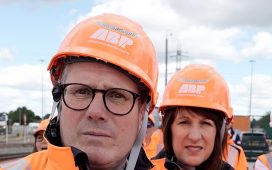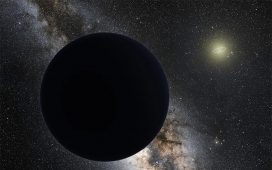Unlock the Editor’s Digest for free
Roula Khalaf, Editor of the FT, selects her favourite stories in this weekly newsletter.
China’s Tsingshan Holding Group, the world’s biggest nickel producer, is set to raise up to HK$2.39bn ($306mn) in an initial public offering of a battery-making subsidiary on Monday, testing investor appetite at the end of another lacklustre year for listings in Hong Kong.
The IPO of Chinese lithium-ion battery manufacturer REPT Battero Energy is set to be the fourth largest in Hong Kong this year but comes after tepid market sentiment for new share listings. Its stock exchange has become only the seventh-largest destination for IPOs in 2023, after topping the global rankings as recently as 2019.
The listing gives rare public exposure to Tsingshan and its low-key founder Xiang Guangda, who was unexpectedly thrust into the global spotlight when his huge bet on falling nickel prices backfired in March last year. Tsingshan suffered a trading loss of about $1bn and the London Metal Exchange suspended nickel trading for eight days.
REPT is the latest Chinese battery maker to tap global investors in offshore markets, as the country’s electric vehicle industry gears up for global expansion. The listing exposes Xiang’s strategy of extending his raw materials business into the manufacturing of EV batteries.
Tsingshan was a long-term, predictable supplier of raw materials that could support future global expansion, said REPT director Wang Haijun at an online briefing last week.
“REPT’s goal is to become a highly international enterprise, and it is currently deploying overseas infrastructure in countries like Indonesia, Europe, Chile and elsewhere,” he added.
The company is debuting in a market in which no listing has surpassed $1bn this year, according to Dealogic, with investor enthusiasm damped by China’s sluggish economy, capital outflow pressures due to high US interest rates and rising geopolitical risk.
The largest IPO has been that of ZJLD, a Chinese distiller of the popular baijiu spirit, which raised $677mn in April. Only 58 companies have listed up to December 12, down 18 per cent from the same period in 2022.
“It’s fair to say that this year the sentiment [for Hong Kong share sales] remains pretty weak, and investors remain very selective of the deals that they would like to participate in,” said Pruksa Iamthongthong, senior investment director of Asia Dragon Trust at Abrdn.
The EV sector still offers structural growth given its importance in the energy transition, Iamthongthong said.
“It comes down to how much do you want to pay in the current transition,” she said. “The valuation is looking relatively more attractive when there’s low investor appetite, but you may need to stomach the volatility in the short term.”
REPT has been pushing forward with its share sale due to “internal pressure for cashing out” and the challenge of fierce domestic competition, a person close to management said.
As the 10th-largest Chinese EV battery maker, REPT has had its market share decline from 1.7 per cent in 2022 to 1.2 per cent in the first six months of this year, as bigger rivals such as CATL and BYD grow production capacity.
REPT said in its prospectus that sales had “gradually shown signs of recovery, but we still face an increasingly intensified competitive landscape in the lithium-ion battery industry”.
Despite the strong backing of Tsingshan on sourcing raw materials, analysts and investors have questioned REPT’s profitability. While sales grew by more than 64 per cent year on year to Rmb6.6bn ($928mn) in the first half of 2023, the company is still lossmaking.
REPT said future sales and its control of costs would be key factors for its profitability, but there was “no assurance as to whether and when it will become profitable”.
Others have raised concerns about a high number of related-party transactions between REPT and Tsingshan.
The parent company is one of REPT’s five largest customers, accounting for 12.7 per cent of total revenues in the first half of this year, up from 5.9 per cent in 2022. The company said Yongqing Technology, another Tsingshan subsidiary, helped sell more batteries to US EV manufacturers this year.
“There isn’t much visibility in the financial situation of its parent, which leaves doubts about the healthiness of related transactions between them,” said a China-focused manager at a UK-based hedge fund who did not wish to be named.











